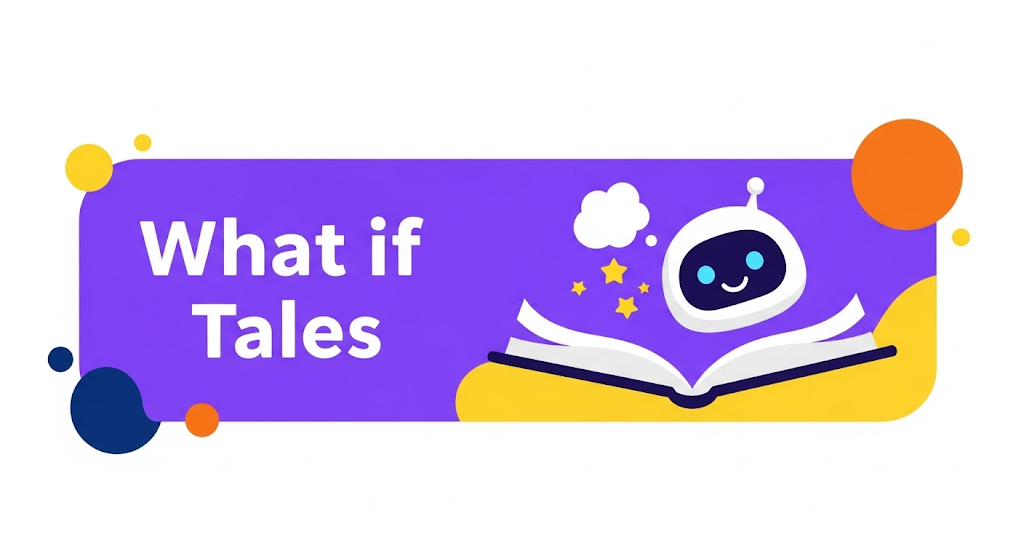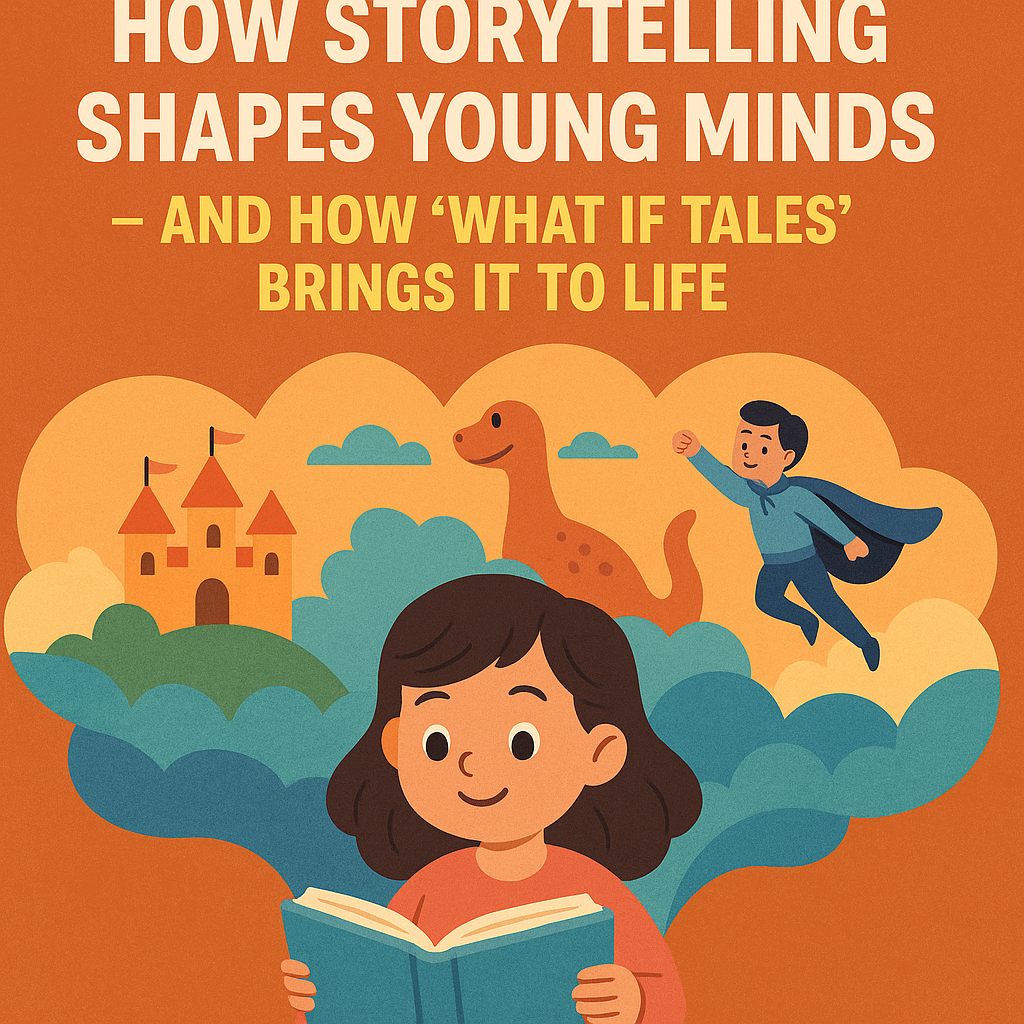In the age of digital learning and AI, the power of a simple story remains unmatched—especially when it comes to shaping the hearts and minds of children. Across centuries and cultures, stories have served as mirrors and windows: mirrors reflecting children’s inner thoughts and emotions, and windows offering new perspectives on empathy, responsibility, courage, and kindness.
Recent studies from renowned institutions like Harvard and UCLA have confirmed what educators have always known: storytelling is one of the most effective tools for influencing behavior and developing emotional intelligence in children. And that’s precisely where “What If Tales” steps in.
The Science Behind Stories
A well-known study from Harvard’s Graduate School of Education found that when children engage with fictional stories, especially ones that reflect moral choices or social dilemmas, they develop stronger empathy and prosocial behaviors. UCLA’s research further emphasizes that stories can foster emotional growth, conflict resolution skills, and even moral reasoning when they are tailored to a child’s age and cultural context.
When children read or hear about characters facing challenges—like telling the truth, helping a friend, or overcoming fear—they begin to internalize those values. The more the character resembles the child (in age, personality, or environment), the more likely the child is to adopt the character’s behaviors.
What If Tales: Storytelling With a Purpose
“What If Tales” is not just a storytelling app—it’s a personalized journey that taps into each child’s imagination, curiosity, and emotional world. When a child submits a “what if” question, like “What if my backpack could talk?” or “What if I became invisible at school?”, the AI crafts a full, child-friendly narrative around that idea.
But the real innovation lies in the behavioral layer.
Teachers and parents can now select specific behavior goals—such as kindness, courage, honesty, or confidence—and the story will subtly promote those values. This turns every tale into a lesson wrapped in adventure, encouraging children to explore better decision-making and emotional growth through characters they relate to.
Let’s say a teacher notices that a student is struggling with sharing or cooperation. The teacher can request a story that promotes teamwork and generosity. The resulting tale might feature a young hero who must rely on others to solve a mystery or complete a quest—teaching the lesson without ever sounding like a lecture.
A Tool for Educators and Families
Beyond stories, the app generates custom quizzes to reinforce comprehension and values. Teachers can approve stories and monitor which values each story promotes. This offers a unique way to track a child’s emotional development, not just their literacy.
Families can also participate. Parents receive a companion version of each story and are encouraged to discuss the lessons afterward. This bridges the gap between school and home, reinforcing consistency in behavioral modeling. Dinner table conversations can now be sparked by questions like, “What would you do if you were in the hero’s shoes?”
A Vision for the Future
The goal of “What If Tales” is bigger than just reading stories. It aims to cultivate a generation of thoughtful, curious, and emotionally intelligent children who are equipped to handle the challenges of the real world—one personalized story at a time.
Whether used in classrooms, homes, or therapeutic settings, “What If Tales” proves that technology and timeless wisdom can coexist to raise kinder, smarter kids. And as the platform evolves, it plans to expand with age-specific tracks, creative writing tools, and even multilingual options to reach children around the world.
Start Your Child’s Story Today
If you’re a teacher, parent, or educational leader, now is the perfect time to explore “What If Tales.” Let your children submit their first “what if” question, and see how their curiosity blooms into creativity—and how a single story can make a lasting impact on their behavior, mindset, and emotional growth.
Try it today and watch your students and children fall in love with learning, one story at a time.
Sources & Further Reading
- Harvard – How to Use Stories to Help Kids Develop Empathy – Explores how storytelling and conversation nurture empathy in children. (Making Caring Common)
- Harvard – The Children We Mean to Raise – A research study on the empathy gap in youth and the need for value-based education.
- UCLA – Daniel Tiger’s Neighborhood Retrospective Study – Long-term impact of prosocial storytelling on emotional learning in teens.
- UCLA – Tweens and TV: What Kids Learn from Popular Shows – A study of how media influences children’s values like kindness and achievement.
- UCLA – Kindness Is Contagious (Bedari & YouTube Kids) – Children shown acts of kindness are more likely to act kindly themselves.


Leave a Reply